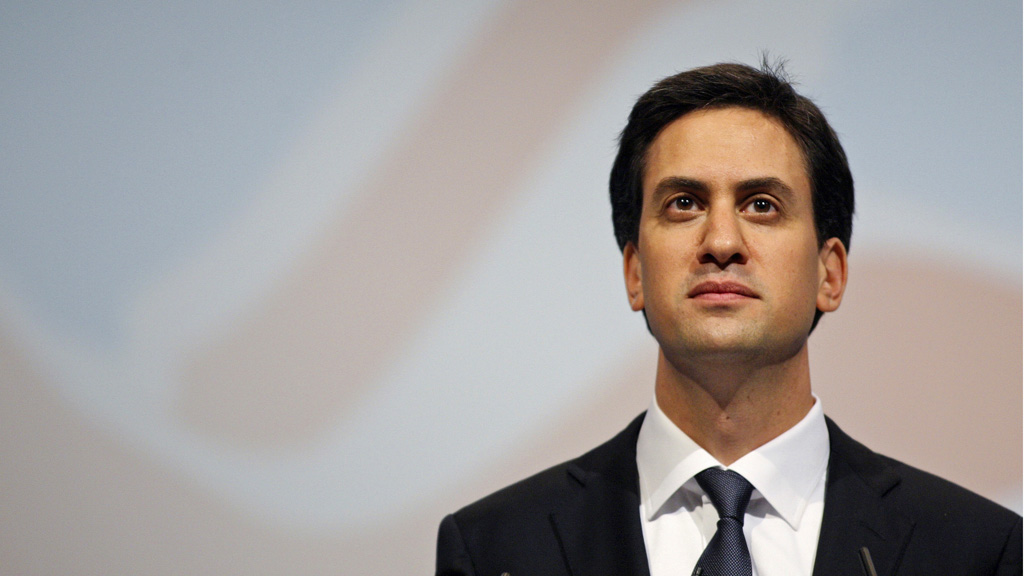Miliband: Labour will not sweep immigration under the carpet
Labour leader Ed Miliband admits the party made “mistakes” over immigration and says that too little is being done to integrate people who move to Britain.

Talking about eastern European immigration when Labour was in power, Mr Miliband said his party had failed to tackle the growing problem of segregation along racial and ethnic lines in Britain’s cities.
In a high-profile speech in London he vowed not to sweep public anxieties over British cultural identity under the carpet but insisted that the multi-ethnic Britain revealed in this week’s census and in the summer’s Olympic and Paralympic Games is a cause for celebration.
During the speech, Mr Miliband unveiled new policies designed to promote integration in housing, work and use of the English language.
Labour expect migrants to learn English, will tackle landlords who pack newcomers to the UK into overcrowded houses and ban recruitment agencies from seeking workers only from particular countries or ethnic groups.
Mr Miliband explained: “Britain is at its best when it comes together as a nation, not when it stands divided. That’s what one nation is about.
Mr Miliband’s comments follow the publication of census figures this week showing a large rise in immigrants had boosted the population of England and Wales by 3.7m to 56.1m since 2001.
Figures showed the number of foreign-born residents increased to 13 per cent (7.5 million people), with one in three Londoners born abroad, compared to one in 20 in the north east.
Polish immigration has grown significantly in the last decade; they are now the second largest group behind Indians; in 2001 the Irish were the largest group. Ireland has now fallen into fourth place. White ethnic Britons across the country as a whole dropped to 80 per cent at the end of 2011, down from 87 per cent in 2001.
Celebrating diversity
Drawing on his own parents’ experience as Jewish refugees from the Holocaust, Mr Miliband stated: “We should celebrate multi-ethnic diverse Britain. We are stronger for it – and I love Britain for it.”
“But at the same time we know there is anxiety about immigration and what it means for our culture. The answer is not to sweep it under the carpet or fail to talk about it, nor is it to make promises that can’t be kept. It is to deal with all of the issues that concern people.”
“To give a sense of the scale of Britain’s change: almost one million children in Britain now don’t speak English as their first language at home, double what it was in 1997.”
“We have said we will learn lessons from eastern European migration and ensure maximum transitional controls in future.”
Mr Miliband explained he accepts there are concerns about the “pace of change” in British life due to immigration, particularly in specific areas which have witnessed high numbers of new arrivals.
“The capacity of our economy to absorb new migrants has outrun the capacity of some of our communities to adapt,” he added.
“The last Labour government made mistakes in this regard. We have said we will learn lessons from eastern European migration and ensure maximum transitional controls in future. And we will look at how the government’s immigration cap works in practice.
“But I believe we can all cope with these pressures if we recognise them and understand how to respond.”
Miliband claimed that previous Labour administrations were “overly optimistic” in assuming that integration would happen by itself and people from different racial backgrounds “would learn to get on together… automatically.”
He went on to reject calls for all immigrants to “assimilate” by giving up their heritage, insisting that “people can be proudly, patriotically British without abandoning their cultural roots and distinctiveness.”
Segregation
The segregation of communities was also rejected, with Mr Miliband warning: “We cannot be comfortable with separation. It blocks opportunities, leaving people at the margins. And it breeds ignorance, suspicion and prejudice.”
Under his new plans, Labour would put English language teaching for immigrants ahead of funding for translating non-essential information into their mother tongues, he said.
Parents of foreign-born children would be required to take responsibility in home-school agreements for them learning English, and the number of public sector jobs for which proficiency in English is mandatory would be increased.
-
Latest news
-
Scarlett Johansson ‘shocked’ and ‘angered’ claiming ChatGPT ‘imitated’ her voice3m

-
One-punch deaths: parents help son’s killer turn life around5m

-
Dirty rivers: Ruben Reuter challenges water minister8m

-
UK economy: when will the interest rate fall?3m

-
Ex-Post Office company secretary questioned over Horizon scandal5m

-




